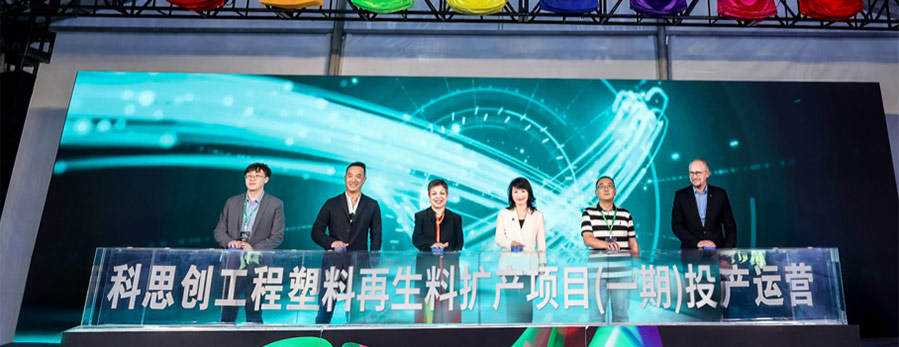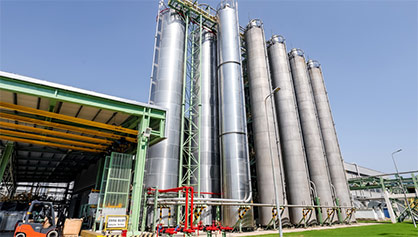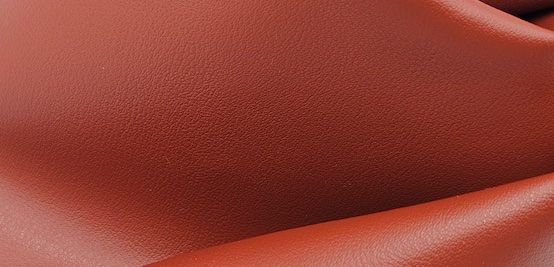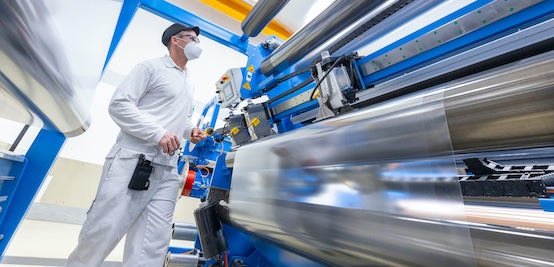#Recycling / Circular Economy
Covestro launches mechanical recycling polycarbonate compounding line in China

- Shanghai facility is the inaugural dedicated line of its kind of Covestro with an annual capacity of 25,000 tons
- Committed to supplying 60,000 tons of recycled-content polycarbonates annually in Asia Pacific by 2026
- Expansive range of premium recycled polycarbonates facilitating diverse applications
- Yearly polycarbonate production capacity in Asia-Pacific grows by more than 100,000 tons
"The launch of our MCR production line marks another significant stride in our journey towards achieving a circular economy and operational climate neutrality by 2035," said Sucheta Govil, Chief Commercial Officer of Covestro. "Plastic waste recycling is pivotal in realizing this vision, and through the expansion of our recycled plastics production capacity, we aim to lead the way in driving sustainability across diverse industries."
Covestro is committed to supplying over 60,000 tons of recycled-content polycarbonates annually in the Asia Pacific region by 2026, in response to robust market demand. Recently, the company also transformed an existing compounding line at its Map Ta Phut site in Thailand for mechanically recycled polycarbonate.
"These investments enable us to meet the rising demand for PCR polycarbonates, enhancing our capacity and efficiency. With new or repurposed capacity now operational, we are better positioned to assist our downstream customers in their journey towards more sustainable products, expediting the transformation of industries towards a circular and climate-neutral future," said Lily Wang, Head of Covestro’s Business Entity Engineering Plastics.
A broad range of PCR portfolio
The demand for such materials is surging on a global scale, driven by regulatory initiatives like the European Union’s proposed Directive on end-of-life vehicles (ELV Directive), which sets strict benchmarks for the utilization of recycled plastics. Furthermore, industries like consumer electronics are poised for increased demand for recycled materials, especially those with a substantial recycled content.
These market dynamics underscore the significance of Covestro’s recent developments in providing PCR polycarbonates. Earlier this year, the company unveiled a polycarbonate boasting 90 percent recycled content. This grade not only attains outstanding whiteness and highly saturated colors but also touts a sustainable feature – a 70 percent reduction in carbon footprint compared to its fossil-based virgin plastic counterpart. Achieving this remarkable accomplishment requires a meticulous selection of high-quality recycled materials and precise optimization of material composition during the compounding process.
Furthermore, Covestro is actively engaged in pioneering the chemical recycling of polycarbonates. Having successfully developed an innovative process within the laboratory, the company is now embarking on the technical implementation of this breakthrough at a pilot scale.
Expansion of polycarbonate production capacity in Asia Pacific
After debottlenecking multiple production lines at the Map Ta Phut site in Thailand, Covestro is nearing the final stages of a program to enhance polycarbonate production capacity and capabilities across the Asia-Pacific region. This program also includes the addition of new production lines at sites in Shanghai and Guangzhou, China, as well as Greater Noida, India, in recent times. The combined additional capacity now exceeds 100,000 metric tons annually. These strategic projects, aimed at optimizing the regional production network, have been supported by using digital tools, which also reduced investment costs.

"In this way, we aim not only to meet the growing demand for polycarbonate in Asia, but also to offer our customers there an improved product quality," says Dr. Nicolas Stoeckel, Head of Operations in the Business Entity Engineering Plastics. "Depending on demand, the upgrades can be used for compounding recycled or conventionally produced polycarbonate." Therefore, both projects are also about improving Covestro´s ability to produce more plastics with higher recycled content.
















